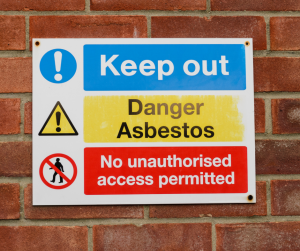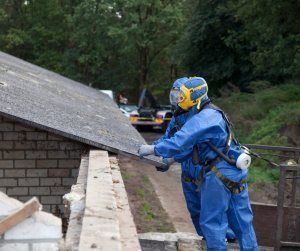The Sunday Times' Campaign: Removing Asbestos from Schools to Safeguard Student and Staff Health
Media attention has surged regarding the presence of asbestos in schools. The Sunday Times has launched a campaign advocating for a national plan to eliminate all asbestos from schools within the next four decades.
Asbestos, a fibrous mineral widely used in the construction industry until the late 20th century, is now recognized as a leading cause of several debilitating diseases, including lung cancer and mesothelioma. Its symptoms often remain latent for up to 40 years, making it a silent killer that often goes unnoticed until it’s too late.
In recent years, concerns have escalated about the long-term health effects of asbestos exposure in schools. This hazardous material has had a devastating impact, with both students and teachers suffering the consequences of past exposure.
Distressing Reality: Unknowing Exposure and Fatalities
The Times’ article sheds light on the urgent issue of asbestos in schools, revealing the distressing reality faced by individuals who were unknowingly exposed to the substance during their educational years. Shockingly, an estimated 10,000 pupils and staff members have died as a result of asbestos exposure since the 1980s. Despite the well-known health risks, many schools in the UK still have this dangerous material on their premises, with approximately 21,500 schools affected.
Negligent Approach
The article also highlights the negligent approach taken by authorities in dealing with asbestos in schools. Failure to effectively remove or manage these hazardous materials has resulted in tragic consequences for those affected.
Lack of Awareness
One of the most concerning aspects revealed in the article is the lack of awareness among teachers, students, and parents regarding the risks associated with asbestos. Many individuals are unaware that their schools may contain this deadly substance. Moreover, accountability for asbestos maintenance and removal is often unclear, leading to challenges in enforcing proper regulations and inspections.
Enhancing Awareness
There is a need for greater awareness campaigns and educational initiatives to inform the public about the dangers of asbestos and the steps that can be taken to mitigate exposure risks. Collaboration between schools, government agencies, and asbestos removal specialists is essential to develop comprehensive strategies for identifying, managing, and eliminating asbestos from educational environments.
Action Needed
The Times’ article serves as a wake-up call, urging immediate action to address the ongoing asbestos crisis in schools. It is crucial for educational institutions, government bodies, and relevant organisations to prioritise the safety and well-being of students and teachers. This includes conducting thorough asbestos surveys, implementing effective management plans, and ultimately removing all asbestos from school buildings.





